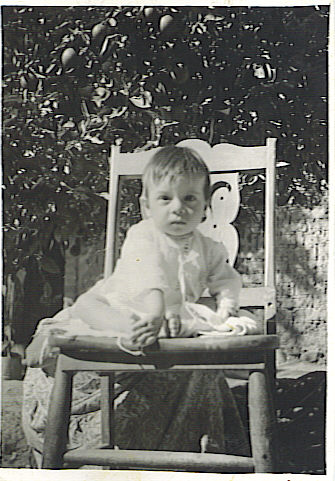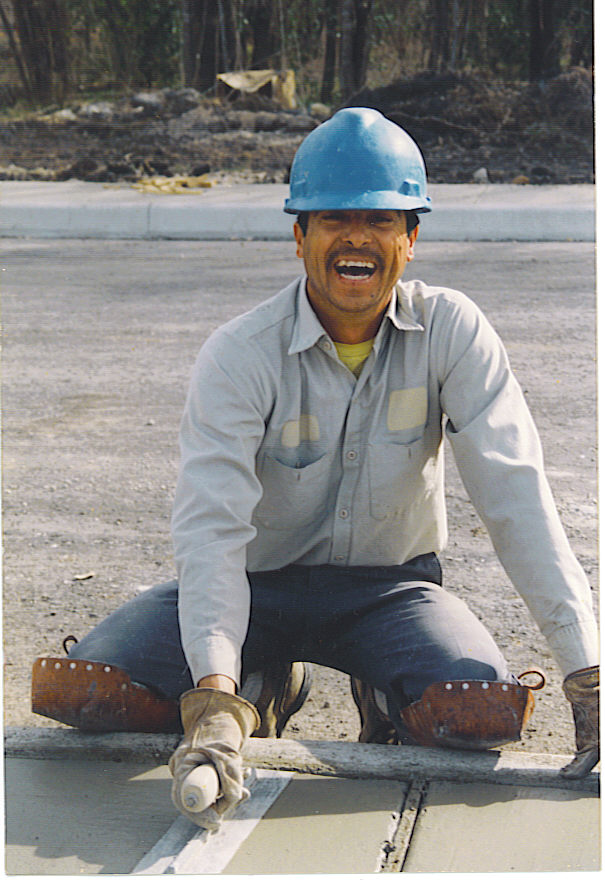Joel Gomez


What do you remember most of growing up in Santa Juana?
I remember when I was a child, I liked that time of my life… because it was funny, the raining season was from June to October. It was fine because I had a dog, a had a work to do, we worked together me and my brothers and our dogs. Taking care of the animals of the house and farm, so it was fun.
Describe a typical day for you as a child?
As a child a typical day was getting up in the morning, do some work before we go to school, like feed the hogs, milk the cows, feed them. Take them to the potrero (field) to the pastura(hay). Taking some water out of the wells for the cows and then we went to school and the school was two times a day we went to school in the morning from 8:00 to 12:00 and then from 3:00 to 5:30. So in the morning that is what I tell, in the middle of the day we went out of school and we took some lunch sometimes a nap sometimes we had work to do, we would go back to school. After school 5:30 until dark we would play sometimes we would play with some boys our age and we had some work to do like feed the cows and feed the hogs, feed the horses sometimes we would ride them and play with the other kids.
Were children very important to families? For labor?
Yes, for the labor yeah because I think my father (does not have) arms enough and time enough to do the work in order to feed us all of us
Was education very important and what was the last year you completed?
In that time really really education was not an important thing in the life because after you get out of the 6 grade is a complete education and then if you have money and time you can attend the secundaria (or the equivalent of) 7th, 8th, and 9th or like middle school, but it was not required for the government or what ever you call it, six grade was the top and you stop if you wanted and so I completed the six grade.
Explain a day at the ranch:
The season rain we going to “semplar” farm, put some seeds in the “surcos” (field’s ground) it was funny. I think it was the best part of my life because I love to do that also there was no other things for kids to do and kid like me are very hyper (he laughs) so it was funny, it was good. In the time did not rain we made some lena (wood stock) and also we have a what is it we took water out of the well for cows from 40 to 60 animals it is a lot of water every day we have to do that, we dig ditches in the side of the “barbecho” (planted field) for the water to stay out of the “barbecho”.
In what year did you immigrate and how old where you? I came here for the first time in 1976 I think I was about 20 years old or 19 I can’t remember very well. I think I came here in 1976 I can’t remember now it was too much time ago. I pass here as illegal to California from Tijuana to San Diego and then I went to Santa Anna California and I stayed there for 20 months and I went back to México. I was about 19 years old.
Why did you decide to come to the United Sates?
Why? well in the land were I were up in the ranch we have a lot of work to do I have no money because I work for my papa and there is no work anywhere and sometimes we need something or we desire to buy something for us like a “chamara” (a jacket) or something like that. So many people would come here from a long time ago like in 1950 and on the people came here to the United States and those people when they came back and they would wear good clothes and would take good cars and that is why I wanted to be here I was thinking maybe my life is going to change.. maybe I would come back and bring a good car and good clothes.
Whose decision was it?
Mine!!! (laughs)
What did your family say?
Say no no! It is to dangerous too be there, to cross over, there too many robbers who robs the people maybe you are going to be lost and you don’t know what to do.
Where did you immigrate to?
California
How was your journey to the U.S?
The journey to the U.S it was not to bad because I only took two buses to Tijuana. One bus to the town near my village to Guadalajara and then one bus from Guadalajara to Tijuana. It was not bad because the bus was always in the road the bus would stop every eight hour to get some lunch and we took about 46 to 48 hours from Guadalajara to Tijuana. The road was not to good that is why we take about 46 to 48 on the way to Tijuana and then we stayed in Tijuana for 2 days and we meet a coyote, a coyote is a person who cross people across the border, so we meet the coyote and he said that in two days we would cross to the United States so we waited for another two days and one night we crossed over the Mesa de Otay I don’t know why we crossed over the mesa de Otay but we did. So when I crossed we were waiting about four hours and then we reached a motel and we stayed there for another day it was not to bad because nobody bothered us the guide was walking with two of us. Me and another partner we stayed in the hotel for one more day then the coyote take me because the other boy ,somebody else took him, his father came to took him from the hotel, so I went to Santa Anna, California there is where they delivered the “pollo” (or the chickling to refer to someone young who crosses the border.
Who paid your way across?
My brother. My oldest brother paid ““el brinco”(or the cross) come le dicen bulgar mente”, anyways he but the money out of his pocket when I was over there.
With who where you going?
With who? With my brother he was in the United States about 8 year before I came here.
What was your first job in the US?
It was , yeah I remember, that it was in a factory that made fake marbel from polyester “rasina” and some other components they made fake marble so I worked there for six months. They only paid two dollars and hour.
How much where you paid?
Only 2 dollars an hour, after that work I worked in another job I could find it only paid $1.60 the minimum was $1.60
Were you ever discriminated against?
I don’t know maybe yes.
Did you have any fears as an immigrant?
Not really because I never saw them because I don’t know what they look like
Where you ever deported?
Yeah I was deported in 1986 when you were about to be born
What did you know about California?
Before oh this is a great land where everything goes easy, money, everything is going to be easy. Poor boys like me are going to be rich that is what I hear.
Was it really how you hear of it?
Nope!
Are California and San Antonio the only places you have lived in?
Yup, yes
What did you miss the most about Mexico?
I don’t know maybe my mom and my dad and my brothers and the liberty of going every where
Did you become a citizen?
yes
What do you consider to be your greatest accomplishment here in the US?
I think it is hard to answer, because for me I haven’t accomplish anything because of the things that I have were not hard to get, they took hard work but yeah I am not satisfied yet.
Would you go back to live in Mexico?
I don’t know it all depends in many things…at first here in the US it is not easy to live in, Mexico is not eady to live, so maybe I would like to stay here.
Is there anything else you would like to add to this interview?
Maybe not.

http://www.jalpazacatecas.net Jalpa's Government This website shows pictures of Jalpa and the surrounding towns. It is good to keep up with the new projects and news from Jalpa. http://www.jalpazacatecas.net (2006).
AIER Cost-of-Living Calculator. The calculator uses the Consumer Price Index to do the conversions. The source for the data is the Bureau of Labor Statistics. The calculator converts the cost of items in American dollars from 1913 to the present. Organized in 1933 as a private, independent, scientific, and educational charitable organization, the American Institute for Economic Research plans its research to help individuals protect their personal interests and those of the Nation. American Institute for Economic Research (AIER), P.O. Box 1000, Great Barrington, Mass 01230. http://www.aier.org/colcalc.html. (2005).
http://www.e-local.gob.mx/work/templates/enciclo/zacatecas/municipios/32019a.htm Jalpa's HistoryThis website shows the location of Jalpa and gives the History of the town and its invations.
Santa Anna California. This website is good to look at Santa Ana California's history and profile. My dad lived in Santa Anna California.
Mesa de Otay. This is a good website to locate the Mesa de Otay.